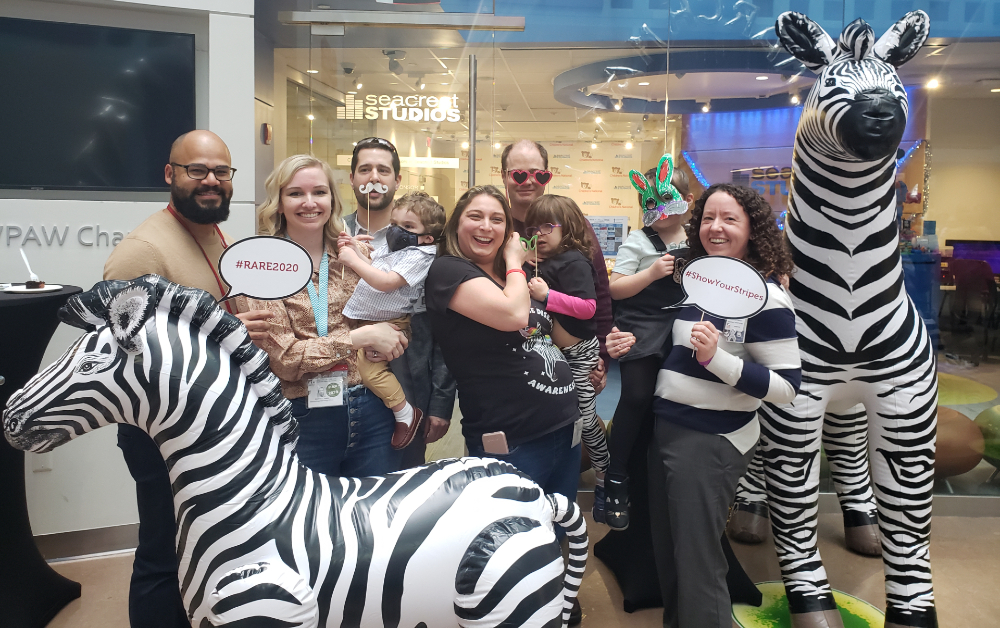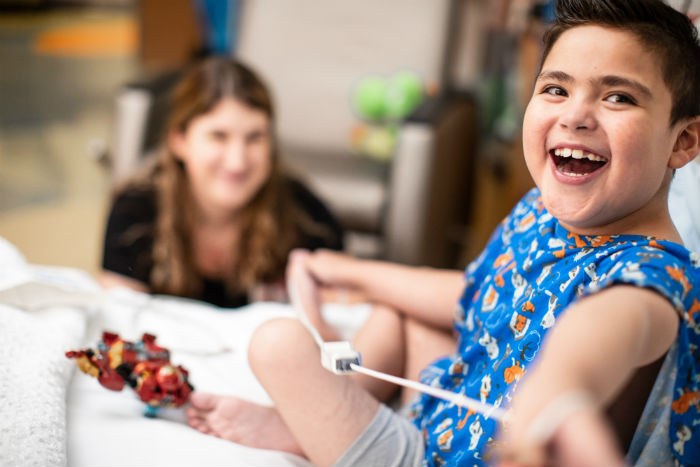Condition
Pediatric Prader Willi Syndrome
What is uniparental disomy?
Normally, we inherit one copy of each chromosome pair from our biological mother, and the other copy of the chromosome pair from our biological father. This is called paternal uniparental disomy. Uniparental disomy refers to the situation in which two copies of a chromosome come from the same parent, instead of one copy coming from the mother, and one copy coming from the father. Angelman syndrome (AS) and Prader-Willi syndrome (PWS) are examples of disorders that can be caused by uniparental disomy.
What is Angelman syndrome?
People with Angelman syndrome have an unusual facial appearance, short stature, severe intellectual disability with a lack of speech, stiff arm movements, and a spastic, uncoordinated walk. They may have seizures and often have inappropriate outbursts of laughter.
Angelman syndrome can result when a baby inherits both copies of a section of chromosome #15 from the father (rather than one from the mother, and one from the father). AS can also occur, even when chromosome #15 is inherited normally—one chromosome coming from each parent. If that section of the mother's chromosome #15 is deleted, only the father's section will be present, allowing AS symptoms to occur. This deletion of a section of the maternally inherited chromosome is the most common cause of AS.
What is Prader-Willi syndrome?
Prader-Willi syndrome, on the other hand, can result when a baby inherits both copies of a section of chromosome #15 from the mother. As with Angelman syndrome, PWS can also occur, even if chromosome #15 is inherited normally. If that section of the father's chromosome #15 is deleted, only the mother's section will be present, allowing PWS symptoms to occur. This latter development happens in 60 to 70 percent of PWS cases.
Babies born with PWS have poor muscle tone and a weak cry. They initially are slow feeders and appear undernourished. The feeding problems improve after infancy. Typically, between 2 to 4 years of age, the child becomes obsessed with food and is unable to control his or her appetite. The overeating often results in rapid weight gain and obesity. Individuals with PWS have short stature, small hands and feet, and intellectual disability.
Consult your healthcare provider or genetic counselor for more information on uniparental disomies.
Schedule an Appointment
Our pediatric specialists provide personalized care for your child’s physical, mental and emotional health needs. Meet our providers and schedule an appointment today.
Meet the Providers Who Treat Prader Willi Syndrome
Departments that Treat Prader Willi Syndrome

Rare Disease Institute - Genetics and Metabolism
Children's National Rare Disease Institute (CNRDI) is a first-of-its-kind center focused exclusively on advancing the care and treatment of children and adults with rare genetic diseases.

Help Kids and Make a Difference
Invest in future cures to help children have brighter futures.






